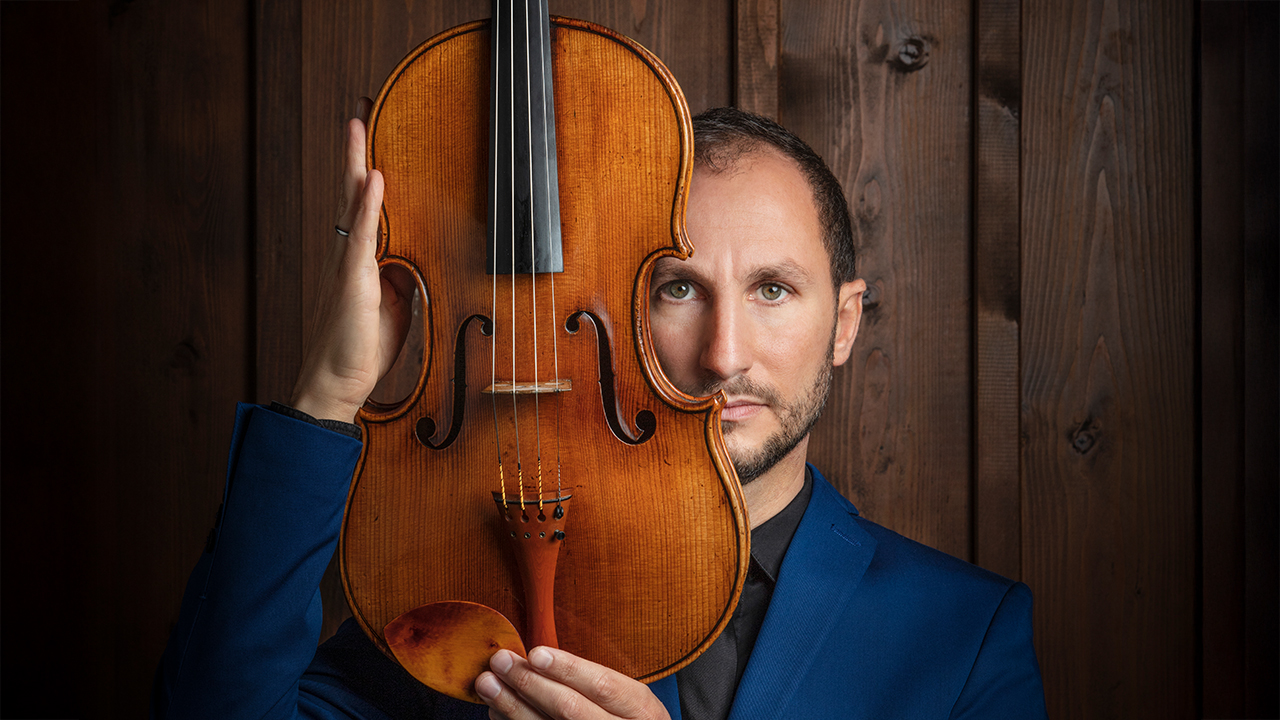We have thousands of human-written stories, discussions, interviews and reviews from today through the past 20+ years. Find them here:
For the Record, Op. 353: Antoine Tamestit, Christian Tetzlaff, Chloë Hanslip, Duo Concertante, Frank Peter Zimmermann
Welcome to "For the Record," Violinist.com's weekly roundup of new releases of recordings by violinists, violists, cellists and other classical musicians. We hope it helps you keep track of your favorite artists, as well as find some new ones to add to your listening! Click on the highlighted links to obtain each album or learn more about the artists.
The Viola in My Life
Antoine Tamestit, viola
Gürzenich-Orchester Köln, François-Xavier Roth conducting
Morton Feldman, composer
Morton Feldman's cycle, The Viola in My Life, is four individual compositions that utilize various instrumental combinations with the viola. "This work has accompanied me like a secret, an almost silent meditation on what the viola means in my life," violist Antoine Tamestit said. "Through it I have experienced how much this instrument connects me to listening, to patience, to inwardness. Here Morton Feldman is not composing in order to shine, but so as to make us hear the infinitesimal, the unspeakable – that is what has touched me profoundly, and I want to share it with the listeners." BELOW: the live performance of "The Viola in My Life."
Elgar – Adès: Violin Concertos
Christian Tetzlaff, violin
BBC Philharmonic Orchestra, John Storgårds, conducting
Grammy-nominated violinist Christian Tetzlaff, with the BBC Philharmonic Orchestra and conductor John Storgårds, presents two major British violin concertos written almost a century apart, in 1910 and 2005. Elgar’s is a classical-romantic concerto in three movements. In the wake of modernism, this huge work was neglected for several decades before entering the standard concerto repertoire. Tetzlaff follows the model of the early recordings of Elgar’s concerto with substantially quicker tempos than most modern versions. About Ades’s Violin Concerto, “Concentric Paths,” MusicWeb International said: "Adès’s blend of gentle rigour and underlying lyricism speaks for itself. … Yes, there is a pervasive element of dark declamation – it seems the timps are kept on a rolling boil for much of the time – but otherwise the music is fresh, mobile and always engaging." BELOW: Violin Concerto in B Minor, Op. 61: II. Andante
Bennett - Duke: Violin Concertos
Chloë Hanslip, violin
Singapore Symphony Orchestra; Andrew Litton, piano and conductor
Both these violin concertos have been neglected for the same reason: their composers were much better known for their achievements in musical theater than their works for the concert hall. Robert Russell Bennett studied composition in Paris with Nadia Boulanger, and his output includes seven symphonies. He also orchestrated some of the highest-profile musicals in Broadway history, including works by George Gershwin, Cole Porter, and Rodgers and Hammerstein. Vladimir Alexandrovich Dukelsky changed his name to Vernon Duke at the suggestion of his friend Jacob Gershovitz – better known as George Gershwin. Duke received rigorous training in classical music at the Kyiv Conservatory, was friends with Prokofiev, and composed ballet scores for Sergei Diaghilev’s Ballets russes, in Paris, as well as three symphonies. He remains better known as the creator of hit shows, such as Cabin in the Sky, and as the composer of numerous songs that became jazz standards, including April in Paris. BELOW: Vernon Duke: Violin Concerto III. Var. 3. Giocoso.
Alice Ping Yee Ho: Dark Tales
Alice Ping Yee Ho, composer
Duo Concertante
Nancy Dahn, violin
Timothy Steeves, piano
"Dark Tales" by Duo Concertante presents Alice Ping Yee Ho’s evocative five-movement work by the same name. Inspired by poet Tom Dawe’s story collection called "An Old Man’s Winter Night," each movement — arranged for piano and violin — channels a ghost story rooted in Newfoundland folklore. The music brings to life Dawe’s stories of shipwrecked spirits, spectral brides, ghost animals, and fairy hauntings. This programmatic work is informed by the composer’s personal connection to ghost lore from her own Chinese heritage. The work was originally premiered in an immersive performance with three-dimensional projections. BELOW: "Dark Tales" Concert Trailer.
Bartók: Sonatas Nos. 1 & 2; Szymanowski: Mythes
Frank Peter Zimmermann, violin
Dmytro Choni, piano
"The three works on this recording bear witness to the changes that took place at the dawn of musical modernism, as composers reappraised and reinterpreted not only traditional genres but all the harmonic, melodic, timbral and rhythmic elements of music. Polish composer Karol Szymanowski developed a highly personal musical language that prioritizes tone color; his triptych Mythes, inspired by legends from ancient Greece, fuses the violin and piano into a single entity with the use of extended violin techniques. Béla Bartók assimilated Szymanowski’s contribution and composed his two sonatas for violin and piano in quick succession at the beginning of the 1920s. These two works, both daring and demanding, skillfully blend the influence of contemporary composers such as Debussy and Schoenberg with elements of Central European folklore." BELOW: Bartók: Violin Sonata No. 2, Sz. 76: I. Molto moderato
If you have a new recording you would like us to consider for inclusion in our "For the Record" feature, please e-mail Editor Laurie Niles. Be sure to include the name of your album, a link to it and a short description of what it includes.
You might also like:
- For the Record, Op. 352: Isabelle Faust; WDR Chamber Players; Ensemble Galilei
- For the Record, Op. 351: Viktoria Mullova; Goldmund Quartett; Sigurgeir Agnarsson
- For the Record, Op. 350: Joshua Brown, Karisa Chiu, The Kanneh-Masons, Ember
* * *
Enjoying Violinist.com? Click here to sign up for our free, bi-weekly email newsletter. And if you've already signed up, please invite your friends! Thank you.
Replies
This article has been archived and is no longer accepting comments.













